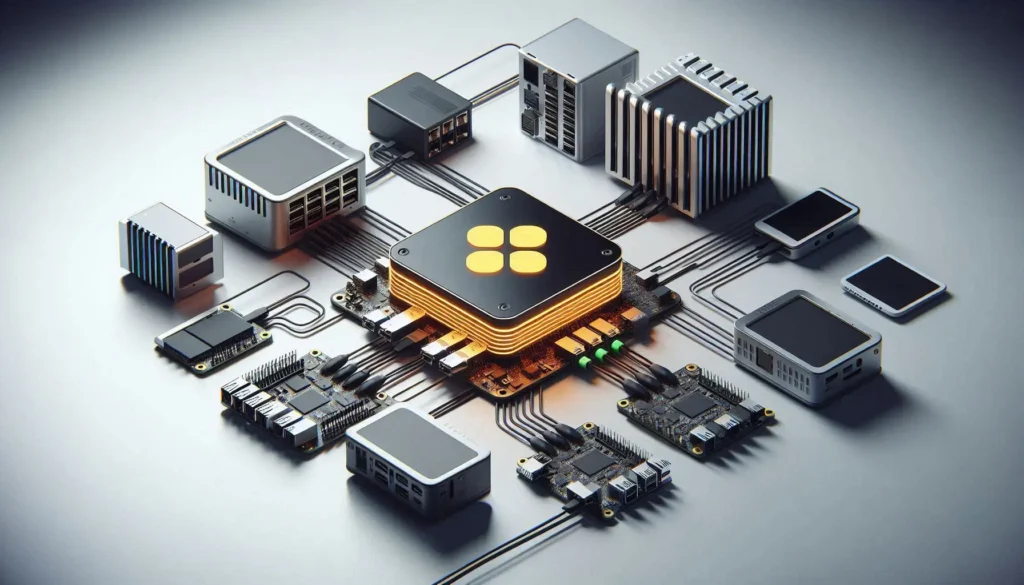
Turbocharge Your Plex Experience
Listen up, entertainment aficionados! If you’re here, you’re probably yearning for that seamless, buttery Plex experience. You know, one where your media streams faster than you can say ‘buffering’? The secret ingredient to this nirvana is often overlooked: storage. Stellar storage ensures your Plex server runs as smooth as my latest suit upgrade. At the heart of this choice comes the battle between SSD (Solid State Drives) and HDD (Hard Disk Drives). Each has its moment to shine, but which will catapult your Plex performance into the stratosphere? Buckle up as we dive into the tech behind these titans.
Understanding the Basics: SSD vs. HDD
What Are SSDs and HDDs?
So, what exactly are SSDs and HDDs? In one corner, SSDs, or Solid State Drives, are the flashiest of the bunch. They store data on interconnected flash-memory chips. In the other, HDDs, or Hard Disk Drives, which are the classic veterans, save data on magnetic spinning platters. Both store data until the end of time—or until you hit the delete button—but they do it with vastly different technologies.
Key Differences in Technology, Speed, and Price
Now, let’s zip through the key differences: SSDs boast lightning-fast access times thanks to their lack of moving parts, meaning fewer delays, lower power consumption, and, more importantly, faster data transfer. However, those perks come with a heftier price tag. HDDs, with their mechanical nature, lag behind in speed but charm many with their affordability and voluminous capacities. In short, SSDs are the Ferraris of the storage world—blazing and efficient—while HDDs are the robust, capacious station wagons.
Also read:
Performance Matters: How Storage Affects Plex
Here’s the tech talk in layman’s terms: storage is the unsung hero of your Plex setup, dramatically affecting streaming quality, load times, and server performance. An SSD with its rapid data retrieval translates into zippier load times and seamless 4K viewing—think of it as VIP access at your favorite concert. HDDs might stroll in a bit late, but their ability to house your ever-expanding media library makes them invaluable. It’s a balancing act of speed against capacity, with your media cravings as the metronome.
Also read:
SSD Dynamics: Speed and Efficiency
Advantages of Using SSDs for Plex
Enter the SSDs, with speed that’ll knock your socks off. The SSD’s data retrieval prowess ensures that your media is served almost instantaneously, and who doesn’t love fast delivery? For those of you swimming in gargantuan libraries or demanding pristine 4K streaming, SSDs offer the kind of ruthless efficiency that makes everything look effortless.
Real-World Scenarios Where SSDs Shine
Picture this: you’re hosting a weekend marathon of superhero blockbusters in glorious 4K. An SSD takes on this task without breaking a sweat, ensuring zero buffering and perfect sound synchronization. If you’re serious about keeping your library up-to-the-minute with the latest and need instantaneous access and high responsiveness, then the SSD is your trusty sidekick.
Also read:
HDD Workhorses: Capacity and Cost-Effectiveness
Benefits of Opting for HDDs
Now for the heavy lifters—the HDDs. These storage behemoths offer unrivaled storage capacity for every dime spent, which means more space for your ultra-diverse collection. If you’re someone who views storage as a long-term investment, the low-cost high-capacity advantage of HDDs can’t be overlooked.
When HDDs Are the Practical Choice
Consider the following scenario: your library speaks in volumes—terabytes, to be exact—and you’re working within a tight budget. Here, HDDs shine, providing a cost-effective solution for vast libraries with lower retrieval speed requirements. For users prioritizing extensive media collections over speed, HDDs roll up their sleeves and handle it like seasoned pros.
Also read:
Factors to Consider: Selecting the Right Storage for Your Needs
Evaluation Criteria: Library Size, Budget, Future Needs
When selecting your storage champion, consider factors like the size of your library, current budget, and future growing needs. Got cash to splash? Then, SSDs might be your go-to for that sleek, high-speed experience. On a shoestring budget? HDDs will let you stock up your collection without financial regret.
Balancing Performance and Cost
Ultimately, you should weigh up performance needs against your wallet’s current state. For those who need a blend of both worlds, creating a balanced setup by leveraging SSDs for the most accessed media files and HDDs for storing vast archives might be the key to Plex perfection.
Also read:
Hybrid Solutions: Best of Both Worlds?
Consider this: using both SSDs and HDDs together in a hybrid setup. An SSD could handle your frequently accessed files for super-fast access, while an HDD could store less-demanded media. Though it requires upfront investment, a hybrid solution offers a dynamic approach to optimize performance and capacity. Beware, though, hybrid solutions should be tailored to match your precise usage and access patterns.
Strategic Decisions: Optimizing Plex with Your Choice
To ensure your Plex server operates at peak performance, organize and routinely update your media library. Whichever storage type you opt for, ensuring proper setup and good management practices is essential. Whether you lean towards speed or capacity, understanding your needs and making informed decisions will guarantee your Plex setup stays ahead of the curve.

Meet Plex-i Man, your friendly neighborhood Plex enthusiast and tech wizard. With years of experience tinkering with media servers and a passion for simplifying complex tech, Plex-i Man is on a mission to help everyone build their perfect Plex setup. When not writing guides or troubleshooting Plex issues, you’ll find him exploring the latest in home theater tech or binge-watching sci-fi series. Got a Plex problem? Plex-i Man is here to save the day!


